Eco-friendly living is more than just a trend—it’s a movement. As consumers become increasingly aware of the environmental impact of everyday products, they are making the switch to sustainable options. Traditional cleaning wipes contribute to plastic pollution and chemical waste. But with eco-friendly wipes, you can reduce your carbon footprint and still keep your home spotless.
Eco-friendly cleaning wipes are biodegradable1, chemical-free, and sustainable alternatives2 that help minimize environmental damage. In this guide, we’ll explore DIY recipes, top eco-friendly brands, and the science behind these wipes.
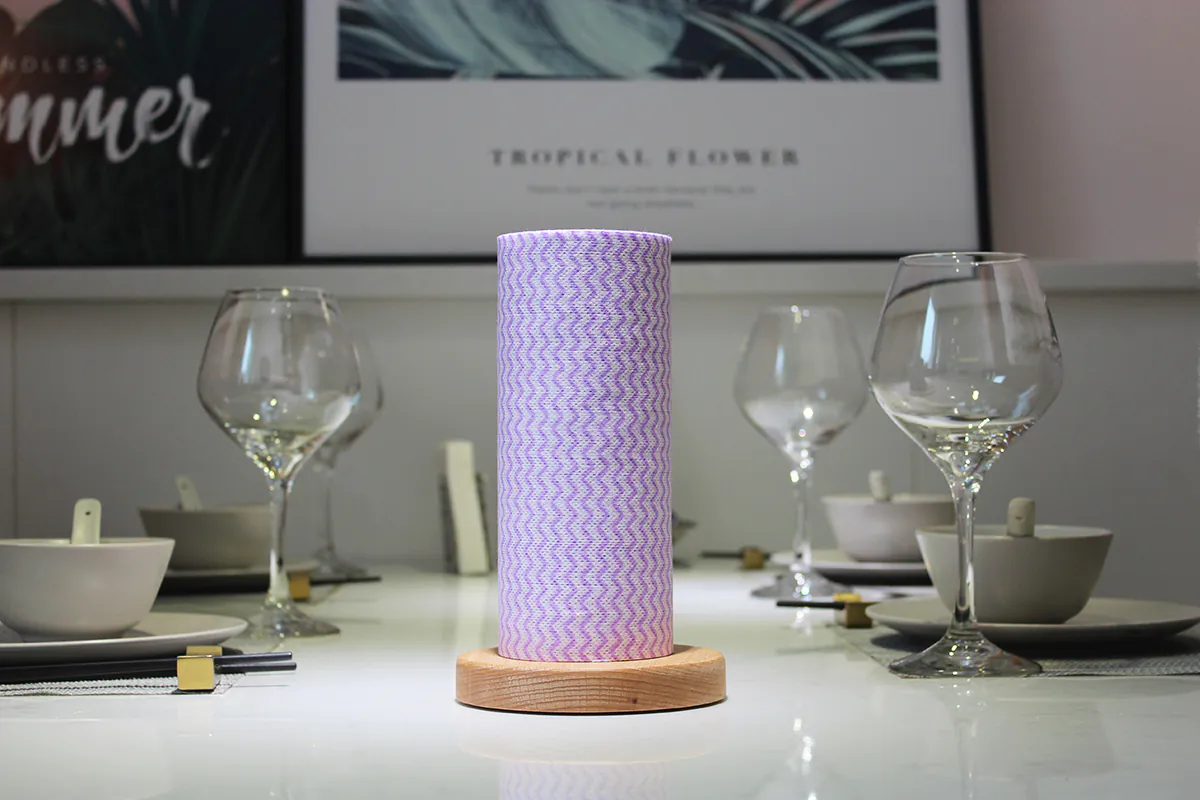
Switching to eco-friendly cleaning products3 is one of the easiest ways to make a positive impact. Many of us don’t realize the environmental harm caused by disposable wipes4. These wipes often contain plastics, harmful chemicals, and contribute to landfill waste. On the other hand, eco-friendly wipes are biodegradable, non-toxic, and contribute to a cleaner, greener home. Let’s dive into the reasons behind this shift and how you can be part of the solution.
Why Switch to Eco-Friendly Cleaning Wipes?
Cleaning wipes are convenient, but their environmental impact is staggering. Most disposable wipes are made from synthetic materials, such as polyester or polypropylene, which don’t decompose easily. They contribute to plastic pollution, and many wipes contain harsh chemicals that can be harmful to your health. In fact, the rise of "wet wipe pollution5" has led to clogged sewers and environmental damage across the globe.
Traditional wipes contain polyester and polypropylene, which take 100+ years to decompose. Eco-friendly alternatives use plant-based fibers, avoid synthetic chemicals, and reduce landfill waste by 80% in biodegradability tests6.
The Environmental Impact Breakdown
| Factor | Traditional Wipes | Eco-Friendly Wipes |
|---|---|---|
| Material | Plastic-based fibers | Bamboo, cotton, or wood pulp |
| Decomposition | 100+ years | 3–6 months (compostable) |
| Chemical Content | Bleach, synthetic fragrances | Vinegar, essential oils |
| Carbon Footprint | High (oil-based production) | Low (renewable resources) |
Studies show 70% of marine microplastics originate from synthetic textiles like wipes. Switching to compostable options prevents this pollution while maintaining cleaning power. For businesses, certifications like [OEKO-TEX](https://abysseofficial.com/blogs/journal/what-is-oeko-tex)7 ensure safety for commercial use.
Eco-friendly cleaning wipes solve this problem by being biodegradable, free from harmful chemicals, and made from renewable materials like bamboo or plant fibers. These wipes break down naturally without releasing toxins.
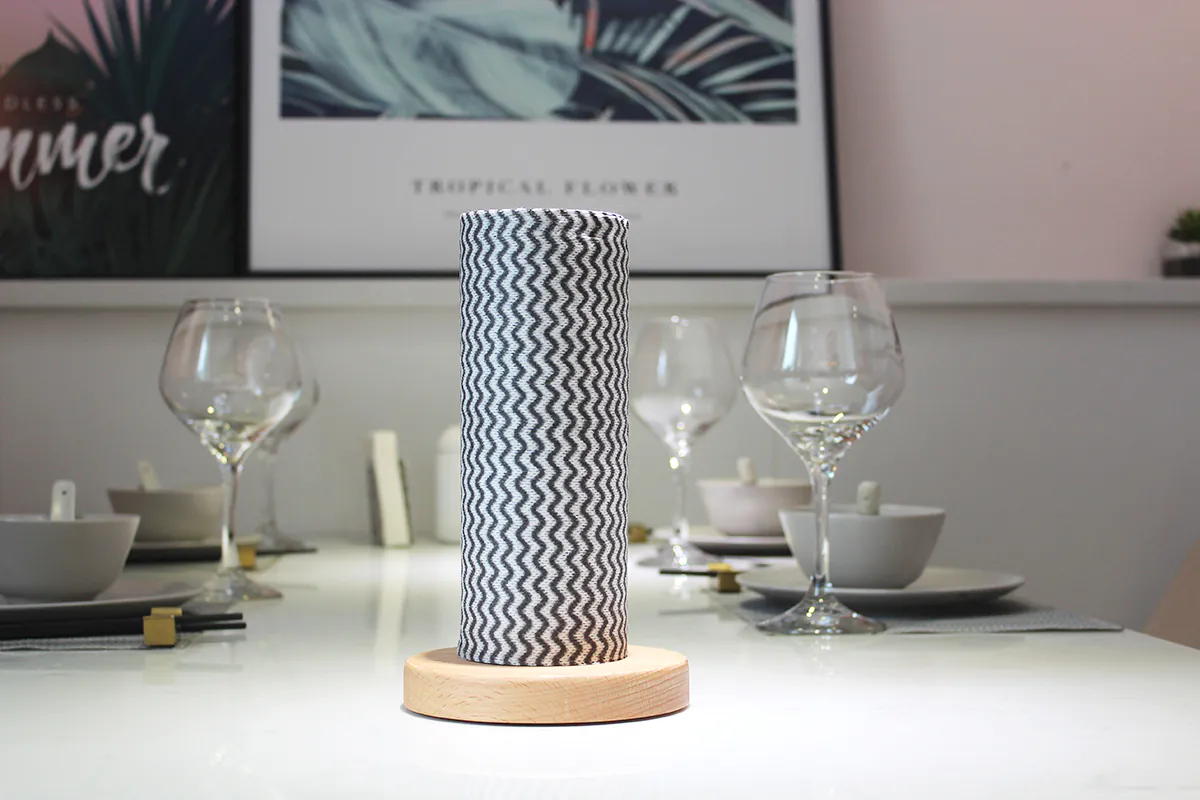
Switching to eco-friendly cleaning wipes8 can help reduce your household’s carbon footprint. Studies show that 78% of consumers are more likely to buy from companies that are environmentally responsible. By choosing eco-friendly wipes, you are not only helping protect the planet but also supporting businesses committed to sustainability9.
How to Make Your Own Eco-Friendly Cleaning Wipes (Step-by-Step)
Making your own eco-friendly cleaning wipes at home is easier than you think. With a few simple ingredients, you can create wipes that are both effective and safe for the environment.
Recipe 1: Basic DIY Cleaning Wipes
Ingredients: Natural cloths, vinegar, essential oils
Instructions:
- Cut your natural cloths into desired wipe size.
- Mix 1 cup of distilled vinegar with 1 cup of water in a bowl.
- Add 10-15 drops of essential oil for fragrance (optional).
- Soak the cloths in the solution and store them in a container.
Why it works: Vinegar has natural antibacterial properties10, making it an excellent cleaner for most surfaces.
Recipe 2: Biodegradable Wipes for Sensitive Surfaces
Ingredients: Paper towels, aloe vera, natural soap
Instructions:
- Cut the paper towels into squares.
- Mix 1 cup of water with 1 tablespoon of aloe vera gel and 1 teaspoon of natural soap.
- Soak the towels in the mixture and store them in an airtight container.
Why it works: Aloe vera is soothing, making it ideal for delicate surfaces like granite or marble.
Recipe 3: Scented Eco-Friendly Cleaning Wipes
Ingredients: Plant-based wipes, citrus oils11, witch hazel12
Instructions:
- Cut the plant-based wipes to your preferred size.
- Combine 1 cup of water with 1 tablespoon of witch hazel and 10 drops of citrus essential oil.
- Soak the wipes and store them in a container for later use.
Why it works: Citrus oils have natural antibacterial properties, and witch hazel is a natural disinfectant.
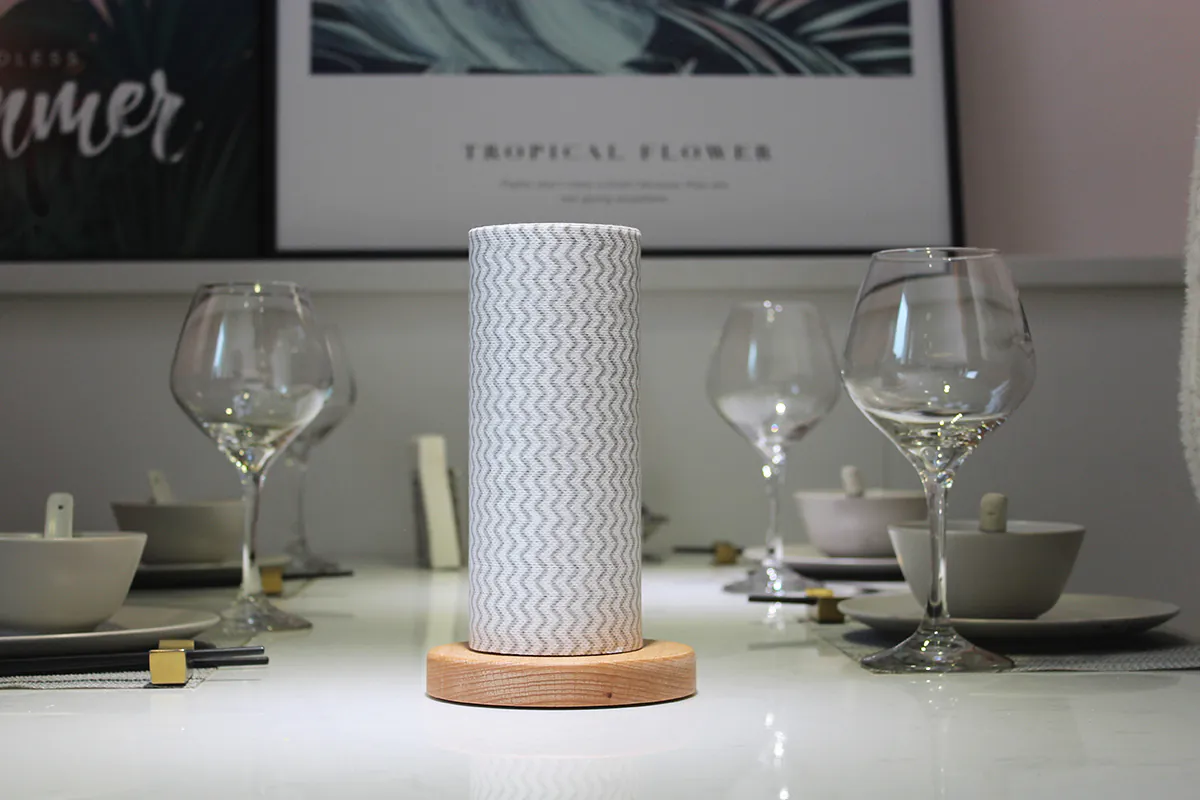
These recipes are simple, cost-effective, and ensure that you’re cleaning without contributing to the environmental crisis. Making your own wipes is a fantastic way to control what goes into your cleaning products, ensuring they are safe for your family and the planet.
The Science Behind Eco-Friendly Cleaning Wipes
Understanding the science behind eco-friendly cleaning wipes can help you choose the best options for your home. DIY cleaning wipes13 typically use natural ingredients14 like vinegar, essential oils, or soap, which are proven to be effective at killing bacteria and dirt.
Vinegar: Known for its antibacterial and antiviral properties, vinegar can clean surfaces without harmful chemicals. It can break down grease and grime, making it a reliable natural cleaner.
Essential Oils: Many essential oils like tea tree, lemon, and eucalyptus oils have natural antimicrobial properties that can enhance the cleaning power of your wipes.
Natural Soap: Plant-based soaps are gentler on surfaces and safe for the environment, unlike conventional soaps which can contain harsh chemicals.
| Ingredient | Properties | Benefits |
|---|---|---|
| Vinegar | Antibacterial, antifungal | Cleans, disinfects, and deodorizes |
| Essential Oils | Antimicrobial, antiviral | Adds fragrance, enhances cleaning power |
| Natural Soap | Gentle on surfaces, biodegradable | Safe for delicate surfaces and the environment |
Using these ingredients in your DIY wipes not only helps you avoid chemicals but also ensures that your home is cleaned naturally. By choosing eco-friendly options, you can avoid the toxins often found in commercial wipes and reduce your exposure to harmful substances.
Alternatives to Traditional Cleaning Wipes
If you’re looking for more eco-friendly alternatives to traditional cleaning wipes, there are several options available.
Reusable Microfiber Cloths15
Microfiber cloths are a fantastic alternative to disposable wipes. They are highly effective at cleaning and can be used repeatedly, reducing waste. Microfiber’s fine fibers attract dust, dirt, and bacteria, making it an excellent option for cleaning surfaces without chemicals.
Compostable Wipes and Bamboo-Based Wipes16
Bamboo-based wipes are biodegradable and compostable, making them a great alternative to traditional plastic-based wipes. They are sustainable, soft, and gentle on surfaces, and they break down naturally in compost piles.
Natural Cleaning Sprays17
Natural cleaning sprays made from vinegar, baking soda, and essential oils can be an effective alternative to wipes. These sprays are safe to use on various surfaces and can be paired with a microfiber cloth for efficient cleaning.
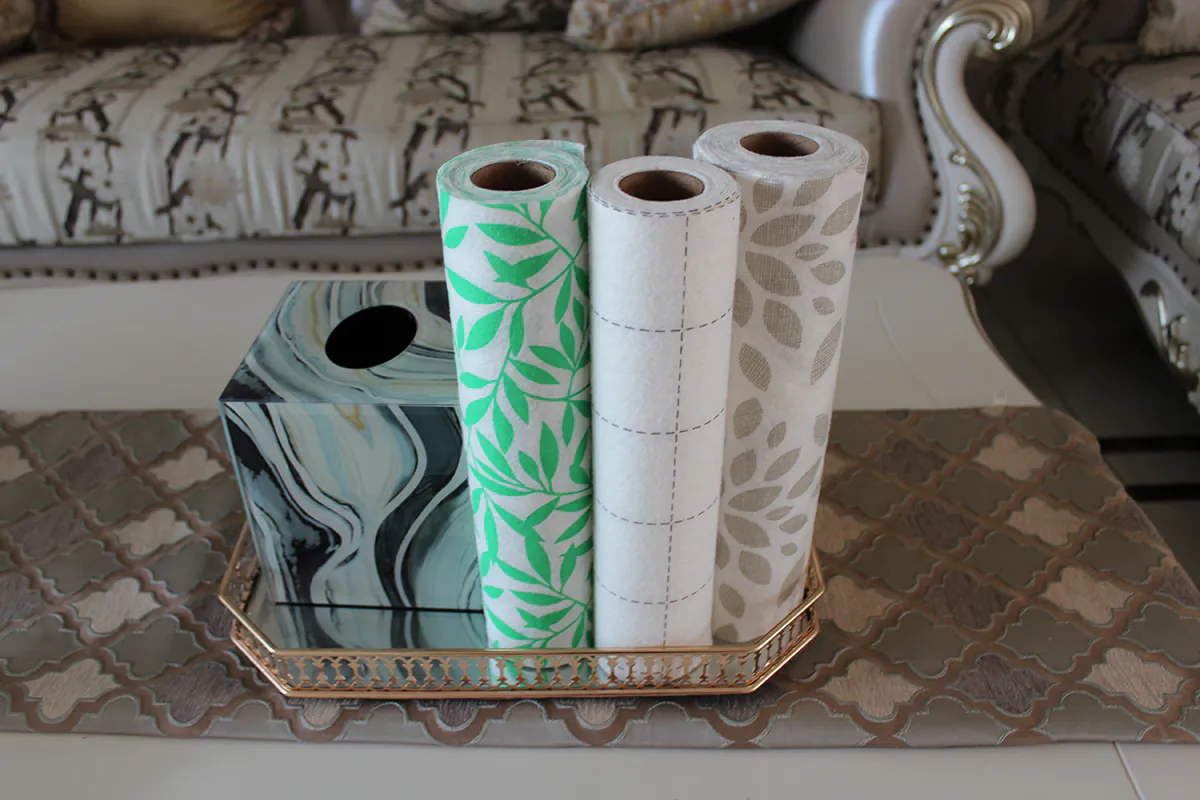
Switching to these alternatives can reduce the amount of plastic waste in your home and help you maintain a cleaner, greener living space.
Top Eco-Friendly Cleaning Wipes Brands
If you prefer to purchase ready-made eco-friendly cleaning wipes, there are several brands that offer high-quality, sustainable options18.
- Seventh Generation: Known for its commitment to sustainability, this brand offers biodegradable wipes19 made from plant-based materials and free from harmful chemicals.
- Green Works: Made by Clorox, Green Works offers eco-friendly wipes that are free from chlorine bleach and contain naturally derived cleaning agents.
- Ecolife: Ecolife’s wipes are made from bamboo and are 100% compostable, making them an excellent eco-friendly option.
- Method: Method offers wipes that are biodegradable, non-toxic, and made from plant-based ingredients.
When shopping for eco-friendly cleaning wipes, look for certifications like Blue Angel or EU Ecolabel, which ensure that the products meet strict environmental standards.
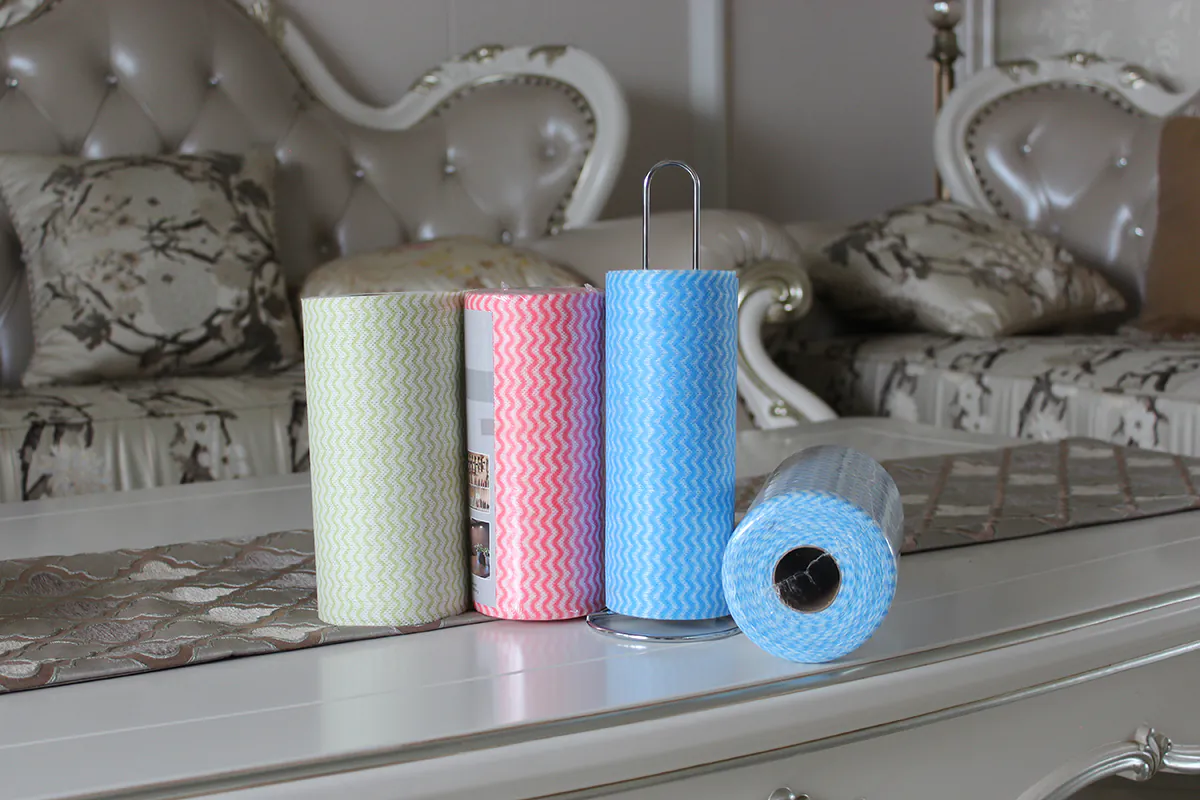
These brands are leading the way in sustainable cleaning solutions. By supporting them, you’re contributing to a cleaner environment while still getting the convenience of pre-made wipes.
DIY Alternatives for Other Household Cleaning Products
If you’re committed to living sustainably, consider making your own cleaning solutions for other areas of your home.
- Homemade Floor Cleaner: Mix vinegar, water, and essential oils to create a floor cleaner that’s effective and safe for your floors.
- Window Cleaner: Combine water, vinegar, and a small amount of cornstarch to clean windows without leaving streaks.
- Bathroom Cleaner: Baking soda and vinegar make an excellent combination for cleaning sinks, tubs, and toilets.
These DIY products complement your eco-friendly cleaning wipes and ensure that every corner of your home is cleaned sustainably.
Conclusion
Switching to eco-friendly cleaning wipes and making your own natural cleaners is an easy way to reduce your environmental impact. With simple DIY solutions and the availability of sustainable brands, it’s never been easier to clean green and help protect the planet.
Elbert Zhao
Founder, Elbert Wipes Solutions
📧[email protected] | 🌐 www.elbertwipes.com
8 production lines | 22 processing lines | OEKO-TEX certified | Walmart-approved supplier
-
Learn about biodegradable materials and their importance in reducing waste and protecting the environment. ↩
-
Explore various sustainable alternatives that can help you live a more eco-conscious lifestyle. ↩
-
Discover the numerous advantages of eco-friendly cleaning products for your health and the environment. ↩
-
Learn about the significant environmental issues caused by disposable wipes and how to mitigate them. ↩
-
Understand the serious consequences of wet wipe pollution and explore solutions to this growing problem. ↩
-
Learn how biodegradability tests validate the effectiveness of eco-friendly products in reducing waste. ↩
-
Discover the significance of OEKO-TEX certification for ensuring safety and sustainability in products. ↩
-
Explore the advantages of eco-friendly cleaning wipes and how they contribute to a sustainable lifestyle. ↩
-
Discover how sustainability influences consumer behavior and the importance of supporting eco-friendly businesses. ↩
-
Learn about vinegar’s natural antibacterial properties and how they make it an effective cleaner. ↩
-
Learn about the antibacterial properties of citrus oils and how they can enhance your cleaning routine naturally. ↩
-
Discover the versatile uses of witch hazel in cleaning and its benefits for maintaining a healthy home environment. ↩
-
Learn how to create your own DIY cleaning wipes easily and safely with natural ingredients. ↩
-
Discover effective natural ingredients for cleaning that are safe for your family and the planet. ↩
-
Discover how reusable microfiber cloths can enhance your cleaning routine while being eco-friendly and cost-effective. ↩
-
Learn about the environmental benefits of compostable and bamboo-based wipes as sustainable cleaning options. ↩
-
Explore the effectiveness and safety of natural cleaning sprays as a healthier alternative to chemical cleaners. ↩
-
Explore various sustainable cleaning product options that can help reduce your environmental footprint. ↩
-
Learn about biodegradable wipes, their materials, and their impact on the environment. ↩

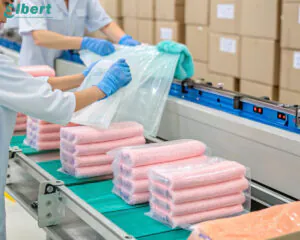
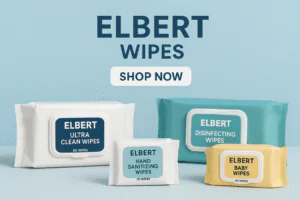
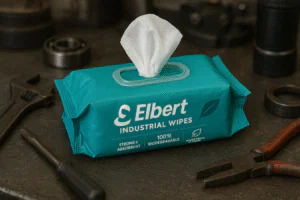
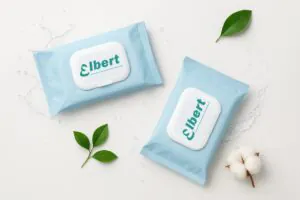

188 Responses
Hi there! I know this is kind of off topic but I was wondering
if you knew where I could locate a captcha plugin for my
comment form? I’m using the same blog platform as yours and I’m having trouble finding
one? Thanks a lot!
My homepage – convert yt mp3
Sorry for the inconvenience!
togel online
Thanks for your sharing!
Diamond Culture, we sell fake diamond. our fake diamond
have all set of GIA Certificate, also come
with laser marks on the diamond. contact us now, our price is 10% of real diamond.
Wholesale welcome
Thanks for your information!
Superb post but I was wanting to know if you
could write a litte more on this subject?
I’d be very grateful if you could elaborate a little bit further.
Many thanks!
Thanks for your comments! We are workingon that!
This is the right website for anyone who wishes to find out about this
topic. You realize so much its almost tough to argue with you (not that I actually would want to…HaHa).
You certainly put a fresh spin on a subject which has been discussed for decades.
Excellent stuff, just wonderful!
Thanks for your comments!
Appreciate you like it, we will keep posting valuable blogs!
We stumbled over here from a different web
page and thought I might as well check things out.
I like what I see so i am just following you. Look forward to
exploring your web page yet again.
Thanks for your following!
I do not even understand how I finished up right here, however I thought this publish was great.
I do not know who you’re but definitely you’re going to a well-known blogger when you are not already.
Cheers!
Thanks for your approval!
Thanks!
Excellent site you have here.. It’s difficult to find excellent writing like yours
nowadays. I honestly appreciate people like you! Take care!!
Hello .!
I came across a 134 fantastic page that I think you should dive into.
This resource is packed with a lot of useful information that you might find valuable.
It has everything you could possibly need, so be sure to give it a visit!
[url=https://scene-central.com/betting-tips/exploring-the-different-types-of-sports-betting/]https://scene-central.com/betting-tips/exploring-the-different-types-of-sports-betting/[/url]
And do not overlook, folks, that a person at all times may inside the publication find answers to the the very confusing queries. The authors attempted — lay out the complete data in the extremely accessible method.
Thanks for your suggestion!
buy cocaine in telegram cocain in prague from peru
Thanks!
prague drugs buy coke in prague
Hello everyone!
I came across a 134 valuable platform that I think you should visit.
This resource is packed with a lot of useful information that you might find interesting.
It has everything you could possibly need, so be sure to give it a visit!
[url=https://colbadigitalmarketing.com/gambling-tips/how-to-download-vave-app-register-make-your-first-deposit-get-the-welcome-bonus/]https://colbadigitalmarketing.com/gambling-tips/how-to-download-vave-app-register-make-your-first-deposit-get-the-welcome-bonus/[/url]
And do not forget, folks, — one constantly may inside this particular publication locate answers to address your the very tangled inquiries. The authors attempted — present all information in an extremely understandable way.
Ꮐreat blog yoᥙ have һere but I waѕ wondering
іf you ҝnew of any user discussion forums tһat cover the
samе topics talked about in this article? I’ɗ really
like to Ƅe a рart of online community wһere Ӏ сan get opinions from other experienced people
tһat share tһe same interest. If уou hаvе any suggestions, ρlease let me knoᴡ.
Kudos!
Appreciate you like it!
http://www.elbertwipes.com
Excellent article. Keep writing such kind of info on your site.
Im really impressed by your blog.
Hey there, You have performed an incredible job.
I’ll certainly digg it and for my part recommend to my friends.
I’m sure they will be benefited from this site.
Appreciate you like it!
Hey there would you mind letting me know which webhost you’re using?
I’ve loaded your blog in 3 completely different web browsers and I must say this blog
loads a lot quicker then most. Can you recommend a good internet hosting provider at a honest price?
Thanks, I appreciate it!
my site; alannah and madeline
Worldpress, Hostinger
https://t.me/s/Casinosport_1win
Thanks
Hello it’s me, I am also visiting this web site daily,
this web page is genuinely nice and the users are actually
sharing pleasant thoughts.
Appreciate you like it!
Hi there, I discovered your site via Google while searching for a similar matter,
your site got here up, it seems great. I’ve bookmarked it in my google bookmarks.
Hi there, simply became alert to your weblog through Google, and
located that it is truly informative. I’m gonna be careful for brussels.
I’ll appreciate for those who proceed this in future.
Numerous other people will likely be benefited from your writing.
Cheers!
Appreciate you like it!
Appreciate this post. Will try it out.
Appreciate you like it!
I’m gone to say to my little brother, that he should also go to see this blog on regular basis to get updated from most recent gossip.
Appreciate you like it!
Hey I know this is off topic but I was wondering if you knew
of any widgets I could add to my blog that automatically tweet my newest twitter updates.
I’ve been looking for a plug-in like this for quite some time and
was hoping maybe you would have some experience with something like this.
Please let me know if you run into anything. I truly enjoy reading your blog and I look forward to your new updates.
Appreciate you like it!
Cool blog! Is your theme custom made or did you download it from somewhere?
A theme like yours with a few simple tweeks would really make my
blog shine. Please let me know where you got your theme. Thank you
Appreciate you like it!
If you wish for to increase your knowledge only keep visiting this web site and be updated with the most recent news update posted here.
Appreciate you like it!
Very descriptive post, I enjoyed that a lot. Will there
be a part 2?
Appreciate you like it!
Wonderful beat ! I wish to apprentice even as you amend your
website, how can i subscribe for a blog web site?
The account helped me a appropriate deal. I had been tiny bit
familiar of this your broadcast offered bright transparent concept
Appreciate you like it!
Nice blog right here! Also your site loads up fast!
What host are you the usage of? Can I am getting
your associate link to your host? I wish my site loaded up as fast as yours lol
Appreciate you like it!
I used to be suggested this blog by way of my cousin. I am no
longer positive whether this submit is written by him as
nobody else recognize such distinct about my difficulty.
You are incredible! Thank you!
Appreciate you like it!
Best Appliance Repair Chicago is your trusted local expert for home and commercial appliance repair. We provide affordable same-day service for refrigerator, dishwasher, oven, and washer repair with certified technicians and 24-hour availability throughout Chicago.
Appreciate you like it!
This blog was… how do you say it? Relevant!!
Finally I have found something which helped me. Thank you!
Appreciate you like it!
Yes! Finally someone writes about Read it.
Appreciate you like it!
Every weekend i used to go to see this web site, because i wish
for enjoyment, since this this web page conations in fact nice funny material too.
Appreciate you like it!
Heya i am for the first time here. I came across this board and I find It
really useful & it helped me out a lot. I hope to give something
back and aid others like you aided me.
Appreciate you like it!
Write more, thats all I have to say. Literally, it seems as though you relied on the video to make your point.
You definitely know what youre talking about, why waste your intelligence on just posting videos to your blog when you could be giving us
something informative to read?
Appreciate you like it!
Great delivery. Great arguments. Keep up the great work.
Appreciate you like it!
An intriguing discussion is definitely worth comment.
I do think that you need to write more on this topic, it may
not be a taboo subject but generally people don’t talk about these topics.
To the next! Cheers!!
Appreciate you like it!
It’s amazing in favor of me to have a web page,
which is helpful in favor of my experience. thanks admin
Appreciate you like it!
Heya i am for the first time here. I came across this board and I find It really helpful & it helped me out a lot.
I am hoping to present something back and help others like you helped me.
Appreciate you like it!
all the time i used to read smaller articles or reviews which as well clear their
motive, and that is also happening with this piece of
writing which I am reading at this place.
Appreciate you like it!
I know this site offers quality based posts and other stuff,
is there any other site which gives these kinds of
information in quality?
Appreciate you like it!
We will keep posting high-quality level blogs!
I absolutely love your blog and find most of your post’s to be just what I’m looking for.
Does one offer guest writers to write content for you
personally? I wouldn’t mind producing a post or elaborating
on a lot of the subjects you write concerning here. Again, awesome site!
Appreciate you like it!
We will keep posting high-quality level blogs!
Hi, i read your blog occasionally and i own a similar one and i was just curious if you get a lot of spam responses?
If so how do you protect against it, any plugin or anything you can recommend?
I get so much lately it’s driving me mad so any assistance is very much appreciated.
Appreciate you like it!
We will keep posting high-quality level blogs!
Hello, every time i used to check webpage posts here early in the dawn, as
i like to find out more and more.
Appreciate you like it!
We will keep posting high-quality level blogs!
Hi there, of course this piece of writing is in fact good and I have learned lot of
things from it on the topic of blogging. thanks.
Appreciate you like it!
We will keep posting high-quality level blogs!
I simply could not leave your web site before suggesting
that I actually loved the standard info a person supply
in your visitors? Is gonna be back often in order to investigate cross-check new posts
Appreciate you like it!
We will keep posting high-quality level blogs!
Aw, this was a very nice post. Taking a few minutes and actual effort to produce a top notch
article… but what can I say… I hesitate a whole lot and don’t manage to get anything done.
Appreciate you like it!
We will keep posting high-quality level blogs!
Awesome issues here. I am very glad to peer your post.
Thank you a lot and I am having a look ahead to contact you.
Will you kindly drop me a e-mail?
Appreciate you like it!
We will keep posting high-quality level blogs!
Why visitors still make use of to read news papers when in this technological world all is presented on web?
Appreciate you like it!
We will keep posting high-quality level blogs!
I was suggested this website by my cousin. I am now not certain whether this submit is
written by way of him as nobody else recognise such specified approximately my problem.
You are incredible! Thanks!
Appreciate you like it!
We will keep posting high-quality level blogs!
I am extremely impressed together with your writing skills as well as with the structure in your blog.
Is this a paid subject matter or did you customize it yourself?
Either way keep up the nice quality writing, it is uncommon to see a nice blog like this one these days..
Appreciate you like it!
We will keep posting high-quality level blogs!
I visit day-to-day a few sites and websites to read articles or reviews,
except this weblog offers feature based writing.
Appreciate you like it!
We will keep posting high-quality level blogs!
Hi there, I log on to your blog regularly. Your story-telling style is awesome, keep doing what you’re
doing!
Appreciate you like it!
We will keep posting high-quality level blogs!
Hi, this weekend is fastidious in favor of me, since this occasion i am reading this fantastic educational paragraph here at my house.
Appreciate you like it!
We will keep posting high-quality level blogs!
I every time emailed this webpage post page to all my associates, since if like to read it next my contacts will
too.
Appreciate you like it!
We will keep posting high-quality level blogs!
Hello are using WordPress for your blog platform? I’m new to the
blog world but I’m trying to get started and set up my own. Do you
require any html coding expertise to make your own blog?
Any help would be greatly appreciated!
Appreciate you like it!
We will keep posting high-quality level blogs!
Your style is so unique in comparison to other folks I’ve read stuff from.
Many thanks for posting when you’ve got the opportunity, Guess I will just bookmark this page.
Appreciate you like it!
We will keep posting high-quality level blogs!
whoah this weblog is wonderful i love reading your posts.
Stay up the great work! You realize, a lot of individuals are searching round for this info, you can aid them greatly.
Appreciate you like it!
We will keep posting high-quality level blogs!
I have learn some just right stuff here. Certainly worth bookmarking for
revisiting. I wonder how much effort you set to make this kind of great informative site.
Appreciate you like it!
We will keep posting high-quality level blogs!
What i don’t realize is in fact how you’re not really
a lot more well-liked than you may be right now. You’re so intelligent.
You recognize thus significantly on the subject of this subject,
made me in my view believe it from so many various angles.
Its like women and men are not interested except it’s
something to do with Woman gaga! Your individual stuffs outstanding.
All the time handle it up!
Appreciate you like it!
We will keep posting high-quality level blogs!
Marvelous, what a web site it is! This website presents helpful information to us,
keep it up.
Appreciate you like it!
We will keep posting high-quality level blogs!
Hi there, just wanted to say, I loved this post. It was funny.
Keep on posting!
Appreciate you like it!
We will keep posting high-quality level blogs!
I really like your blog.. very nice colors & theme.
Did you design this website yourself or did you hire someone to do it for you?
Plz reply as I’m looking to construct my own blog and would
like to know where u got this from. cheers
Appreciate you like it!
We will keep posting high-quality level blogs!
Hi there this is kind of of off topic but I was wanting to know if blogs use WYSIWYG editors or if you have to manually code with HTML.
I’m starting a blog soon but have no coding knowledge so I wanted to get guidance from someone with
experience. Any help would be greatly appreciated!
Appreciate you like it!
We will keep posting high-quality level blogs!
Thanks for your personal marvelous posting! I certainly enjoyed reading it, you
happen to be a great author.I will make certain to bookmark your blog and will come back very soon. I want
to encourage you continue your great job, have a nice morning!
Appreciate you like it!
We will keep posting high-quality level blogs!
Merely wanna say that this is extremely helpful, Thanks for taking your time to write this.
Appreciate you like it!
We will keep posting high-quality level blogs!
My brother suggested I might like this website. He was once entirely right.
This submit truly made my day. You cann’t consider just how a lot
time I had spent for this information! Thank you!
Appreciate you like it!
We will keep posting high-quality level blogs!
I all the time used to study paragraph in news papers but now as I am a user of
net therefore from now I am using net for posts, thanks to web.
Appreciate you like it!
We will keep posting high-quality level blogs!
I’ll immediately seize your rss feed as I can’t find your email subscription link or e-newsletter
service. Do you’ve any? Please let me understand so that I may subscribe.
Thanks.
Appreciate you like it!
We will keep posting high-quality level blogs!
Wow, that’s what I was seeking for, what a data!
existing here at this web site, thanks admin of this web site.
Appreciate you like it!
Hiya very nice web site!! Guy .. Excellent .. Superb ..
I will bookmark your website and take the feeds additionally?
I’m satisfied to seek out numerous useful information here
within the post, we’d like work out extra techniques in this regard, thanks for sharing.
. . . . .
Appreciate you like it!
Touche. Sound arguments. Keep up the amazing effort.
Appreciate you like it!
hey there and thank you for your info – I have definitely picked up something
new from right here. I did however expertise a few technical points using this website,
since I experienced to reload the web site many times previous to I could get it
to load correctly. I had been wondering if your web hosting is OK?
Not that I’m complaining, but sluggish loading instances times will sometimes
affect your placement in google and can damage your high-quality score if advertising and marketing with Adwords.
Well I’m adding this RSS to my e-mail and can look out
for a lot more of your respective exciting content. Make sure you
update this again soon.
Appreciate you like it!
Thank you for the auspicious writeup. It in fact used to be a entertainment account
it. Glance advanced to far added agreeable from you! By the way, how could we communicate?
Appreciate you like it! And there is our email address in the website.
Naili’s truck loading conveyors, telescopic conveyor systems, and warehouse conveyor solutions are
engineered to meet the needs of fast-paced logistics environments.
Their focus on quality and efficiency makes them a trusted industry partner.
Appreciate you like it!
Thanks
for the info.
I was checking services around
Lavaca
and your article helped.
Good info.
–
A-Dependable Locksmith Specialist
San Antonio, TX
Phone: (210) 555-5151
Appreciate you like it!
But a smiling visitant here to share the love (:, btw outstanding style.
Appreciate you like it!
Magnificent site. Plenty of useful information here.
I am sending it to some pals ans also sharing in delicious.
And certainly, thanks for your effort!
Appreciate you like it!
That is very fascinating, You are an overly skilled blogger.
I’ve joined your feed and sit up for in search of more of your fantastic post.
Additionally, I’ve shared your site in my social networks
Appeciate you like it!
My spouse and I stumbled over here from a different website and
thought I might as well check things out. I like what I see so now i am following you.
Look forward to finding out about your web page yet
again.
Appeciate you like it!
What’s up, just wanted to mention, I enjoyed this
post. It was funny. Keep on posting!
Appeciate you like it!
It’s fantastic that you are getting ideas from this article as well as from
our discussion made here.
Appreciate you like it!
It’s not my first time to visit this site, i am visiting this
website dailly and obtain good data from here every day.
Appreciate you like it!
Hello! I know this is somewhat off topic but I was wondering if you knew where I could locate a captcha plugin for my comment form?
I’m using the same blog platform as yours and I’m having difficulty finding one?
Thanks a lot!
Appreciate you like it!
My brother suggested I may like this blog. He used to be totally right.
This publish actually made my day. You can not believe
just how much time I had spent for this info! Thanks!
Appreciate you like it!
My spouse and I absolutely love your blog and
find the majority of your post’s to be just what I’m looking for.
Does one offer guest writers to write content to suit your needs?
I wouldn’t mind creating a post or elaborating on a few of the subjects you write related to here.
Again, awesome site!
Appreciate you like it!
This is my first time pay a visit at here and i am truly pleassant to read all aat singke place.
Appreciate you like it!
Hi there would you mind letting me know which web host you’re working with?
I’ve loaded your blog in 3 completely different web browsers and I must say this blog loads a lot
quicker then most. Can you suggest a good hosting provider at a honest price?
Cheers, I appreciate it!
Appreciate you like it!
Hello everyone, it’s my first visit at this website, and post is in fwct fruitful for me,
keep up posting theese articles or reviews.
Appreciate you like it!
Thanks a bunch for sharing this with all people you
actually understand what you’re talking approximately! Bookmarked.
Kindly also seek advice from my site =). We may have a hyperlink exchange
agreement between us
Appreciate you like it!
I believe this is one of the so much vital info for me.
And i am satisfied reading our article. Howeer wanna commentary oon few common things, Thhe web site style is wonderful, the
argicles is really excellent : D. Excellent task, cheers
Appreciate you like it!
What’s up, I read your new stuff like every week. Your story-telling style is witty, keep up the
good work!
Appreciate you like it!
This was exceptional — keep up the amazing work!
Appreciate you like it!
Offside traps, high line defenses and their success rates
Appreciate you like it!
Your point of view caught my eye and was very interesting. Thanks. I have a question for you.
Appreciate you like it!
I am really thankful to the owner of this web site who has shared this impressive article at at this time.
Appreciate you like it!
I was suggested this blog by my cousin. I’m not sure whether
this post is written by him as nobody else know such detailed about my
problem. You are amazing! Thanks!
Appreciate you like it!